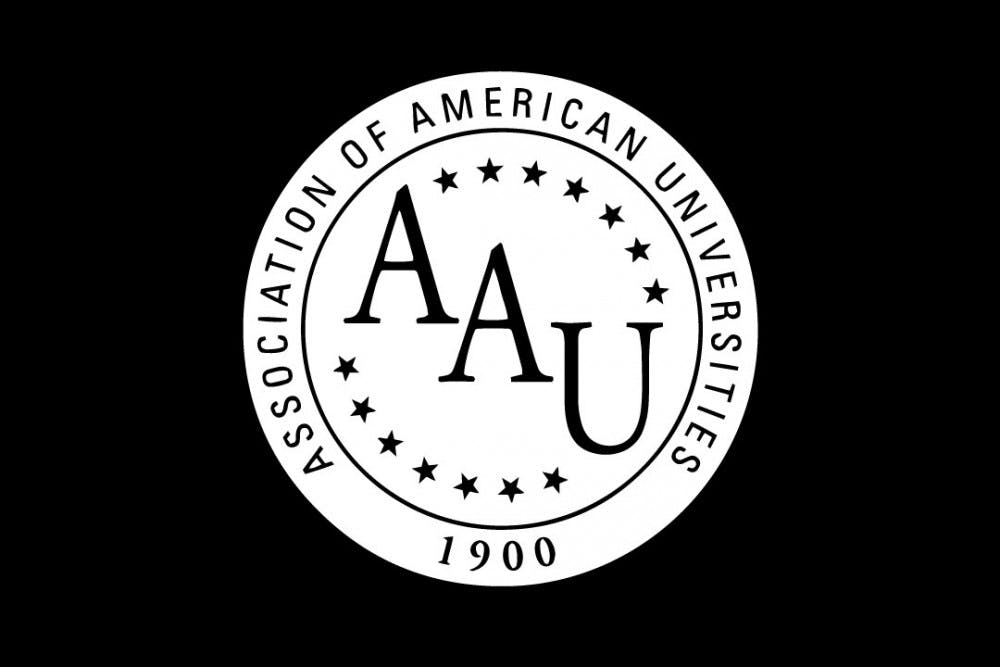
Penn’s email announcement on Jan. 26 of a newly hired sexual violence investigative officer comes on the heels of its recent decision to participate in a national survey on sexual assault and harassment on campus.
The email, sent to undergraduates at 4:02 p.m., announced Christopher Mallios as the University’s first Sexual Violence Investigative Officer, whose position begins immediately. He will lead investigations on all complaints against students allegedly in violation of Penn’s policy on sexual violence, relationship violence and stalking.
The email also described amendments to the Student Disciplinary Charter for handling sexual violence allegations, which will take effect on Feb. 1 and apply to all 12 schools. The procedures are set to be published in the Almanac at some point today.
Though more than two dozen universities have declined to participate, Penn will take part in the national survey, which will anonymously question students about their sexual assault and violence experiences and their knowledge of campus resources.
In collaboration with the research firm Westat, the Association of American Universities is developing a “sexual assault climate survey” — which will cost $85,000 per participating university — to be administered this April. While 26 of AAU’s 60 U.S. members declined the offer to participate, Penn will join in the survey as part of its ongoing effort to emphasize sexual violence prevention and management on campus.
In addition to measuring the prevalence and characteristics of sexual violence incidents on campus, the survey — which will be administered to undergraduate, graduate and professional students — will determine students’ familiarity with campus support services, resources and reporting processes.
“There’s significant interest in Congress about possible legislation relating to sexual assault on college campuses, as well as interest in the Department of Education about taking additional actions on this issue,” AAU spokesperson Barry Toiv said. “Our sense is that they’re not always working with ideal data and information, so it’s our hope that this survey will help fill in this data gap by providing solid information on student experiences and attitudes.”
For Penn, the data will serve as an assessment of its recent sexual violence management efforts, including a revised sexual violence policy, a new office dedicated to sexual misconduct and increased education such as the New Student Orientation sexual violence training.
“This will be another way to gather a data point that will be useful to our rigorous efforts this year,” said Joann Mitchell, Penn’s Vice President of Institutional Affairs. “We’ll be able to get some information about the awareness of our students about our policies, and it will help inform the kind of educational and preventative strategies we might employ,” Mitchell said.
After the survey is conducted, AAU will publicly report the cumulative results from all participating campuses, but each university will be able to decide if and how it makes its individual data available, Toiv said.
“While we have conducted our own campus-level climate surveys, this is a really important moment where we can get comparative data and have the opportunity to glean information from the aggregate data of all the participating schools,” Mitchell said.
Mitchell said that Penn will make the decision of whether to publicly release its survey results sometime over the next few weeks.
The optional publication of individual campus data is one of the main sources of controversy surrounding the survey. Criticisms of the survey’s design and implementation have mostly come from a group of 61 scientists and scholars who published a series of letters urging AAU universities not to take part in the survey.
“One of the most important reasons for doing a campus survey at a national level is to allow students and parents to have information about each individual school,” said Jennifer Freyd, a University of Oregon psychology professor who co-wrote the oppositional letter. “All the information about violence levels should be public for each school since it would put pressure on each school to do something about what’s happening on their campus.”
The letters also criticize AAU’s timeline as being too short for appropriate consultation and review. The most recent letter states that AAU’s “unrealistic” timeline comes at “the cost of ignoring best practices and wide expertise.”
“The core issue is that the design and development process for the survey is being done in a nontransparent way that is not open for peer review, which makes it at odds with science and high integrity research,” Freyd said.
Toiv said that the AAU members that have declined to participate are mostly doing so because they are already carrying out their own campus surveys or are bound to a system-wide survey, such as the mandatory survey for all public universities in California.
Among the other universities planning to participate in the survey are Washington University in St. Louis, Cornell University, the University of Wisconsin and the University of Michigan.
The Daily Pennsylvanian is an independent, student-run newspaper. Please consider making a donation to support the coverage that shapes the University. Your generosity ensures a future of strong journalism at Penn.
DonatePlease note All comments are eligible for publication in The Daily Pennsylvanian.







